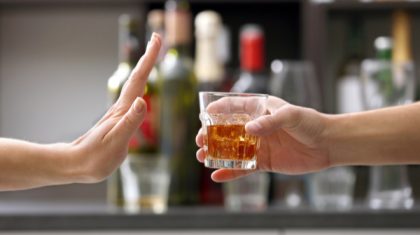Alcoholism and Diabetes are both chronic illnesses. When put together, it can be fatal. The correlation is based on human metabolism. The liver helps to raise blood-sugar levels by releasing glucose. But when alcohol is in the system, this does not happen, as the liver’s first priority is to get rid of alcohol. Therefore, diabetes and alcohol form a lethal combination.

While those having moderate amounts of alcohol can have slight rise in blood sugar, having excess alcohol can actually decrease your blood sugar level — sometimes causing it to drop to dangerous levels, especially for people who have type 1 diabetes.
Diabetes and Alcohol- Other Side Effects
Alcoholic beverages especially beer and sweet wine contain carbs which can raise blood sugar levels. Another downside of alcohol is that it stimulates appetite which can cause you to overeat and in turn affect sugar levels. For those who consume alcoholic beverages on a regular basis encourage high calorie intake and hence making it difficult for them to lose weight. Obesity is one of the contributing factors to making diabetic conditions worse.
A major negative impact of alcohol consumption is that it can hamper your diabetic medicines and insulin and increase triglyceride levels.
With all such negative impacts of alcohol it is best to avoid it completely to have a healthy life.
Do’s and Don’t for People Who Consume Alcohol, Being a Diabetic
Though not recommended, here are a few do’s and don’ts for those who do consume some alcohol:
- Men should not take more than 2 drinks in a day and women not more than 1
- Consume your drink with food
- Intake slowly and not in shots
- Avoid mixed drinks such as sweet wines
- Mix liquor with water
- Try and drink at home with family but if you have a plan outside then carry any diabetic identification card with you in case of emergency.
If you do consume alcohol, make sure to keep a check on blood sugar levels using aglucometer. Also, do not forget to follow all the recommendations given by your health coach.




